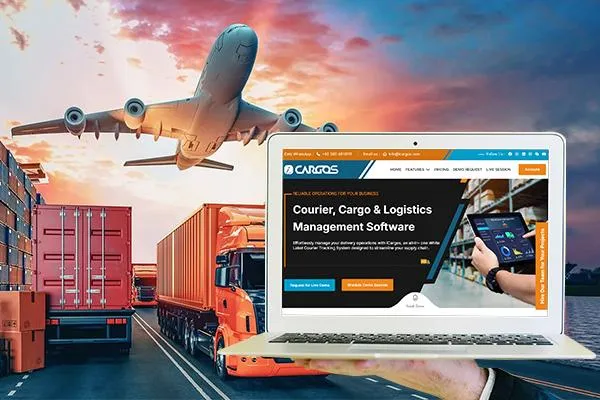
How iCargos Delivery Management Software is the Game-Changer for New Courier Companies
Starting a courier company in today’s fast-paced world is no small feat. With e-commerce booming and customers expecting lightning-fast deliveries, new businesses need to hit the ground running with efficiency and reliability. As someone who’s worked closely with logistics startups in Pakistan, I’ve seen firsthand how the right tools can make or break a fledgling courier operation. One tool that stands out above the rest? A delivery management system. This isn’t just software—it’s the backbone of modern courier operations, ensuring you stay competitive, organized, and customer-focused from day one.
In this article, I’ll dive into why a delivery management system is essential for new courier companies, how it integrates with other solutions like logistics management software and courier tracking software, and why investing in a cloud-based logistics platform could be the smartest move you make. I’ll also share practical insights from my experience and highlight how tools like logistics software for small business can level the playing field for startups, especially in markets like Pakistan.
Why New Courier Companies Need a Delivery Management System
When I first consulted for a small courier startup in Lahore, they were managing deliveries with spreadsheets and WhatsApp groups. It was chaotic—drivers missed routes, customers complained about delayed updates, and the team spent hours reconciling data. Within weeks of implementing a delivery management system, their operations transformed. Orders were tracked in real-time, drivers followed optimized routes, and customers received instant updates via a real-time location tracking app. The result? Happier customers and a team that could focus on growth instead of firefighting.
A delivery management system is designed to streamline every aspect of the delivery process, from order assignment to final delivery. Unlike manual methods, it automates tasks, reduces errors, and provides visibility into your operations. For new courier companies, this is critical because you’re building your reputation from scratch. A single missed delivery or lack of transparency can damage customer trust.
Key Features of a Delivery Management System
Here’s what makes a delivery management system indispensable:
Real-Time Tracking: With real-time tracking logistics software, you and your customers can monitor shipments at every stage.
Route Optimization: A good freight management system includes algorithms that calculate the fastest, most cost-effective routes for drivers, saving fuel and time.
Order Management: From assigning orders to drivers to handling returns, a courier management system keeps everything organized in one place.
Customer Communication: Automated notifications via SMS or email keep customers informed about their delivery status, reducing support queries.
Scalability: A cloud-based logistics platform grows with your business, allowing you to add more drivers, vehicles, or locations without overhauling your system.
The Role of Logistics Management Software in Courier Operations
While a delivery management system focuses on the last-mile delivery, logistics management software takes a broader view, covering the entire supply chain. For new courier companies, integrating both is a smart strategy. When I worked with a Karachi-based startup, they struggled with coordinating warehouse operations and deliveries. By adopting logistics and supply chain management software alongside their delivery management software, they gained end-to-end visibility, from inventory to customer doorstep.
Logistics management software handles tasks like inventory tracking, warehouse management, and freight forwarding. For example, freight forwarding software ensures smooth international shipments, while cargo management software helps manage bulk shipments. For small businesses, logistics software for small businesses offers affordable, scaled-down versions of these tools, making them accessible even for startups with limited budgets.
In Pakistan, where logistics infrastructure can be challenging, tools like Logistics Software Pakistan or Courier Management System Pakistan are tailored to local needs, such as handling cash-on-delivery payments or navigating urban traffic. These solutions ensure your operations run smoothly, even in complex markets.
Why Cloud-Based Logistics Platforms Are the Future
One of the biggest lessons I’ve learned from working with courier startups is the importance of flexibility. A cloud-based logistics platform offers just that. Unlike traditional software that requires hefty upfront costs and on-site servers, cloud-based systems are affordable, scalable, and accessible from anywhere. For a new courier company, this means you can manage operations from a laptop or phone, whether you’re in Lahore, Karachi, or Islamabad.
A cloud-based logistics platform also ensures your data is secure and backed up, reducing the risk of losing critical information. Plus, updates happen automatically, so you’re always using the latest features. For example, cargo tracking software built on the cloud can integrate with real-time tracking logistics software, giving you and your customers instant updates without manual intervention.
In Pakistan, where internet connectivity is improving rapidly, cloud-based tools like Cargo Software Pakistan are gaining traction. They allow small businesses to compete with larger players by offering enterprise-level features at a fraction of the cost.
How Delivery Management Systems Support E-Commerce Growth
Pakistan’s e-commerce market is exploding, with platforms like Daraz and independent online stores driving demand for reliable courier services. As a consultant, I’ve seen new courier companies thrive by catering to this niche with e-commerce logistics software. These tools integrate seamlessly with online stores, automating order imports, tracking, and returns.
A delivery management system tailored for e-commerce includes features like:
Courier Tracking Software: Customers can track orders directly on your website or app, reducing the need for support calls.
Freight Tracking Software: For larger shipments, this ensures transparency across multiple carriers.
AWB Tracking: Simplifies tracking for air shipments, which are common in e-commerce.
By offering these features, new courier companies can attract e-commerce clients who prioritize speed and transparency. For example, a client I worked with in Islamabad landed a contract with a major online retailer by showcasing their real-time location tracking app, which gave customers live updates on their orders.
Overcoming Challenges with Freight Management Solutions
New courier companies often face challenges like high operational costs, driver inefficiencies, and customer complaints. Freight management solutions address these head-on. For instance, freight management software optimizes load planning, ensuring vehicles are fully utilized, while trucking logistics software streamlines fleet management.
In Pakistan, where fuel costs are a major concern, these tools are a lifesaver. A startup I advised in Rawalpindi cut their fuel expenses by 20% after implementing a freight management system that optimized delivery routes. They also reduced driver downtime by using cargo management software to schedule pickups and deliveries more efficiently.
Why Invest in a Courier Management System Early
Some new courier companies hesitate to invest in a courier management system, thinking they can rely on manual processes until they scale. From my experience, this is a mistake. The sooner you adopt delivery management software, the easier it is to build efficient habits and avoid costly errors.
A courier management system also gives you a competitive edge. Customers now expect features like real-time tracking logistics software and awb tracking, and they’re more likely to choose a courier that offers these over one that doesn’t. Plus, with supply chain solutions integrated into your system, you can handle complex logistics tasks as your business grows.
Choosing the Right Delivery Management System
Not all delivery management systems are created equal. When selecting one, consider:
Ease of Use: Your team needs software that’s intuitive
Local Support: In Pakistan, opt for providers like Courier Management System Pakistan that understand local challenges.
Integration: Ensure the system works with your existing tools, like e-commerce logistics software or cargo tracking software.
Cost: Look for logistics software for small business that offers flexible pricing.
One provider I’ve seen deliver exceptional results is iCargos. Their cloud-based logistics platform is tailored for new courier companies, offering everything from real-time tracking logistics software to freight management solutions. You can reach them at:
Phone Number: +92 300 4510131
Email Address: [email protected]


